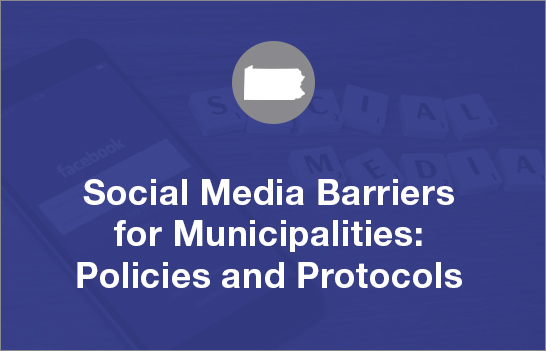Social Media Barriers for Municipalities: Policies and Protocols
Municipalities need to be aware of the social media barriers to engagement which include:
- Budget: Municipalities should include the creation of a social media program in their communications budget. This will help develop their online reputation and educate employees on how to engage on social media.
- Buy-in: It is important for municipalities to lead by example and manage their online reputations. The first step is to understand the benefits of social media engagement for municipalities.
- Too Time Consuming: A strategically planned and well-managed social media program can reduce the amount of time it takes and assist municipalities with managing their social media platforms. There are also various social media aggregate tools that can be used to streamline the social media engagement process. Some of them include: CoSchedule, Hootsuite, Sprout Social, Feedly, TweetDeck, and Buffer.
- Lack of Understanding / Training / Policy: Make time to learn how to engage with social media and put protocols in place for ethics, compliance and common-sense usage.
Integration of Social Media into Daily Operations
A study conducted in 2016 revealed that most cities integrate social media into daily operations. However, many do not provide effective social media policies. The survey found that only 19 percent of the cities using social media incorporated a policy, while the other 81 percent did not. Furthermore, 16 percent could not identify who was managing its social media.
One important training element of a municipality’s social media policy is acceptable use by employees. Municipalities need to determine acceptable and common-sense use of social media such as not using profanity in content. Acceptable use is not about personal interests, it’s about public interests. This is an important factor when forming an acceptable use policy. It’s also vital to remember that a municipality should not try to honor everyone’s point of view, but to serve the best interests of the overall public.
When setting up social media, the municipality should have a dedicated email address associated with all of the municipality’s social media accounts. Make sure that the municipality creates the social media accounts with its own information instead of an employee or intern as the municipality’s page will be linked to their personal accounts.
In addition, municipalities should develop an employee access portion of its policy to determine which employees are allowed access to the social media accounts. The employee access clause should include employee monitoring of government-owned devices, so they are aware of limited privacy. Furthermore, a solicitor should regularly review this portion of the policy, along with any by-laws.
Lastly, the policy should clearly spell out the employee code of conduct. In its most simple form, a code of conduct should teach employees that they need to disclose who they are and their relationship to the municipality, protect the public and the municipality when sharing information online, and use common sense. Municipalities must be transparent with their social media presence, protect employees and the government entity, and employ a professional, straightforward approach to social media engagement.
